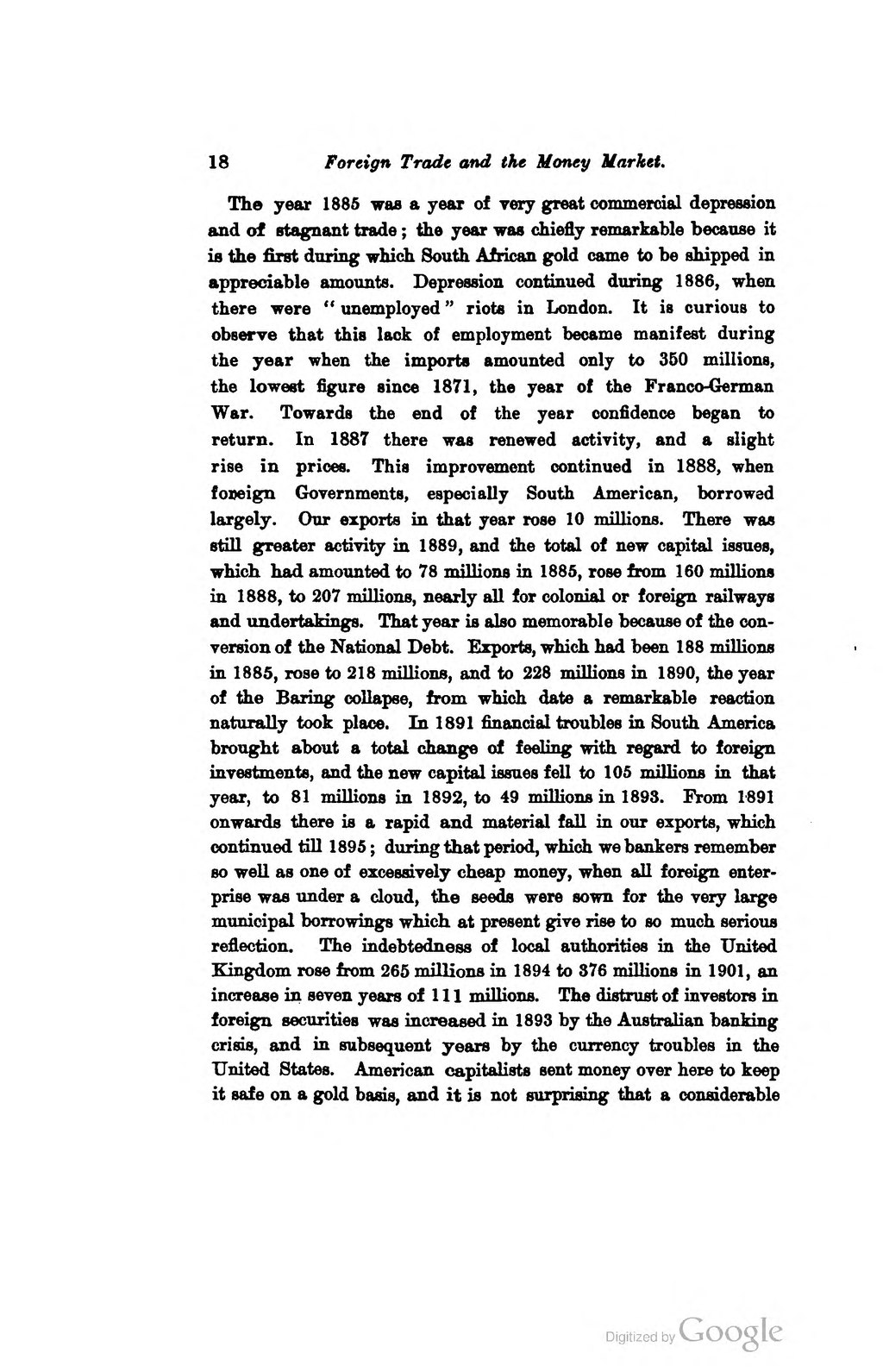The year 1885 was a year of very great commercial depression and of stagnant trade; the year was chiefly remarkable because it is the first during which South African gold came to be shipped in appreciable amounts. Depression continued during 1886, when there were "unemployed" riots in London. It is curious to observe that this lack of employment became manifest during the year when the imports amounted only to 350 millions, the lowest figure since 1871, the year of the Franco-German War. Towards the end of the year confidence began to return. In 1887 there was renewed activity, and a slight rise in prices. This improvement continued in 1888, when foreign Governments, especially South American, borrowed largely. Our exports in that year rose 10 millions. There was still greater activity in 1889, and the total of new capital issues, which had amounted to 78 millions in 1885, rose from 160 millions in 1888, to 207 millions, nearly all for colonial or foreign railways and undertakings. That year is also memorable because of the conversion of the National Debt. Exports, which had been 188 millions in 1885, rose to 218 millions, and to 228 millions in 1890, the year of the Baring collapse, from which date a remarkable reaction naturally took place. In 1891 financial troubles in South America brought about a total change of feeling with regard to foreign investments, and the new capital issues fell to 105 millions in that year, to 81 millions in 1892, to 49 millions in 1898. From 1891 onwards there is a rapid and material fall in our exports, which continued till 1895; during that period, which we bankers remember so well as one of excessively cheap money, when all foreign enterprise was under a cloud, the seeds were sown for the very large municipal borrowings which at present give rise to so much serious reflection. The indebtedness of local authorities in the United Kingdom rose from 265 millions in 1894 to 376 millions in 1901, an increase in seven years of 111 millions. The distrust of investors in foreign securities was increased in 1893 by the Australian banking crisis, and in subsequent years by the currency troubles in the United States. American capitalists sent money over here to keep it safe on a gold basis, and it is not surprising that a considerable
Page:The Bank of England and the State, 1905.djvu/60
Jump to navigation
Jump to search
This page has been validated.
18
Foreign Trade and the Money Market.
